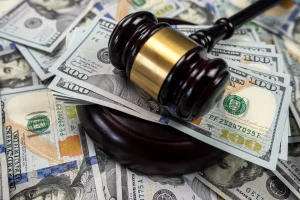Do You Have To Pay Back Insurance If You Get A Settlement?

Being involved in an accident can be a life-altering incident. On top of physical pain and damages, you may be facing a mountain of medical bills and dealing with insurance claims. You may receive a settlement to cover your expenses and losses, but what happens next?
Many don’t realize they might have to repay their health insurance company from the settlement funds. Understanding the implications of insurance reimbursement is crucial. Knowing when to repay your insurer and how much can help you avoid unexpected financial burdens and make the most of your settlement.
At The Callahan Law Firm, we’re here to guide you through these complex situations and help you get the support and compensation you deserve under the law.
Do You Have to Pay Back Health Insurance After You Get a Settlement?
Typically, yes – you may have to pay back health insurance or worker’s compensation if you receive a settlement. This happens if the insurance company covers your medical expenses or other costs related to the accident before the settlement. The insurer might have a right to reimbursement from your settlement proceeds to recover those expenses.
This is often outlined in the terms of your insurance policy or a subrogation agreement. Reviewing your policy and consulting with a legal professional to understand your specific obligations is important.
Liability for Medical Costs After an Accident
After an accident, you are generally responsible for covering your medical costs. Depending on the circumstance, these medical expenses may include:
- Ambulance Services: Emergency transportation to the hospital.
- Hospital Bills: Surgeries, hospital stays, and other emergency care costs.
- Doctor Bills: Charges from specialists, primary care physicians, or other healthcare providers.
- Medication and Medical Equipment: Prescriptions, braces, crutches, or other necessary medical aids.
- Physical Therapy and Rehabilitation: Ongoing care to recover from injuries.
- Diagnostic Tests: X-rays, MRIs, and other scans required for a diagnosis.
- Future Medical Care: Some injuries require long-term treatment or follow-up visits.
If another party caused your injuries, they may be held liable for your medical expenses. You must file a personal injury claim to receive compensation for your medical bills and other damages. Here is the process:
- Document Medical Expenses: Keep detailed records of all medical treatments, bills, and related expenses.
- Prove Liability: Establish that the other party was at fault for the accident. This may require evidence such as police reports, witness statements, and expert opinions.
- Negotiate with Insurance Companies: The at-fault party’s insurance company may offer a settlement. It’s important to ensure that this settlement covers all current and future medical expenses.
- Consider Legal Representation: An experienced attorney from The Callahan Law Firm can help negotiate a fair settlement and fight for the compensation you deserve under the law.
Ways to Pay Medical Bills After an Accident
After an accident, medical bills can quickly become overwhelming. Fortunately, there are methods to help cover these expenses, including:
- Medical Payments Coverage (Med Pay): Optional auto insurance that quickly covers medical expenses after an accident, regardless of fault, but with low coverage limits.
- Personal Injury Protection (PIP): Broader than Med Pay, PIP covers medical bills, lost wages, and more, regardless of fault. It’s required in some states.
- Health Insurance: Helps cover accident-related medical expenses but includes deductibles and co-pays. Insurers may demand reimbursement from your settlement through subrogation.
- Medicaid and Medicare: Government programs covering low-income individuals (Medicaid) or those over 65 (Medicare). They may require reimbursement from settlements.
- Medical Liens: Healthcare providers may treat you on a lien basis, getting paid from your future settlement, but this can reduce your final amount.
- Worker’s Compensation: If you are injured at work and your employer carries worker’s compensation insurance, this may provide coverage for your medical bills.
Each method has its own implications, and choosing the right option can significantly impact your financial recovery. Consulting with an experienced attorney can help you navigate these choices and ensure you’re protected.
Understanding Insurance Company Demands for Reimbursement
When you receive a settlement after an accident, your health insurance company may demand reimbursement for the medical bills they paid on your behalf. This is due to a provision known as a subrogation clause in most health insurance contracts. Subrogation allows the insurer to “step into your shoes” and seek repayment from any settlement or judgment you receive from the at-fault party.
Why Do Insurance Companies Seek Reimbursement?
Insurance companies aim to recover the costs they have paid for your medical treatment. This helps them reduce their overall expenses and keep premiums lower. If they didn’t pursue reimbursement, the cost of claims would rise, potentially increasing insurance rates for everyone.
Implications for Individuals Receiving Settlements
For individuals, subrogation can significantly impact the amount they ultimately receive from a settlement. The insurance company’s demand for reimbursement could reduce your financial recovery, especially if your medical bills were substantial. However, there are ways to fight insurance subrogation and potentially negotiate a reduction in what you owe.
Knowing your rights and the specifics of your insurance policy is crucial. Navigating these demands can be challenging, but with the right legal guidance, you can explore options to minimize the financial impact and retain more of your settlement.

Negotiating Settlements for Health Insurance Claims
When it comes to settling health insurance claims after an accident, personal injury attorneys can negotiate with health insurance companies to reduce their claims against your settlement proceeds, especially when you have yet to be fully compensated for all damages from an accident.
The settlement might not fully cover damages like lost income, pain and suffering, and permanent impairments, particularly if the at-fault driver has minimal insurance. Our experienced lawyers can propose that health insurers accept a lower repayment amount, ensuring you receive more compensation for other losses.
Strategies for Negotiating Lower Reimbursement Amount
When it comes to settling health insurance claims after an accident, here are some ways that a personal injury attorney can play a crucial role in protecting your financial interests:
- Highlight Other Damages: Attorneys can emphasize other damages you’ve incurred, such as pain and suffering, property damage, and emotional distress. By demonstrating that these damages are substantial, they can argue that a higher portion of the settlement should be allocated to non-medical expenses.
- Consider Loss of Income: If you’ve lost income due to the accident, this factor can be used to negotiate a lower reimbursement. The argument here is that the settlement must cover medical expenses and compensate for the financial losses from being unable to work.
- Account for Permanent Impairments: If the accident has resulted in long-term or permanent impairments, your attorney can present this as a reason to reduce the insurance company’s reimbursement claim. Long-term care needs and reduced quality of life should be factored into any negotiation.
Having an attorney negotiate on your behalf often leads to better outcomes than handling these complex issues alone.
We Are Here To Help You Handle Settlements
Dealing with the complexities of settlements can be overwhelming. Understanding liability for medical costs, exploring payment options, and knowing how to negotiate settlements with insurance providers are crucial steps in maximizing your compensation. The process can be complicated, but you don’t have to face it alone.
At The Callahan Law Firm, we have the experience and expertise to help you manage insurance claims, fight subrogation, and negotiate fair settlements. If you’re dealing with a personal injury claim and need guidance, contact us today for legal support.
FAQ
Can insurance take back the settlement?
No, an insurance company cannot take back a settlement once it has been agreed upon and paid. However, if your health or workers compensation insurance has covered any expenses, they may seek reimbursement from the settlement amount through subrogation. This means they can claim a portion of your settlement to recover costs they initially paid on your behalf.
What does settled mean in insurance?
In insurance, “settled” refers to an agreement between the insurance company and the claimant to resolve a claim. The settlement involves a negotiated amount of money that compensates the claimant for losses, damages, or injuries. Once settled, the claim is closed, and the insurer pays the agreed amount.
What is a settlement to the insured?
A settlement to the insured is a payment made by the insurance company to cover losses or damages suffered by the policyholder. It compensates the insured for medical expenses, property damage, lost wages, and other covered losses resulting from an accident or claim. Settlements can be made in lump sums or structured payments, depending on the agreement.

Michael S Callahan is an attorney and founder of The Callahan Law Firm. He focuses his practice on representing individuals and families in personal injury cases involving motor vehicle and truck accidents, workplace accidents and defective products. With over 25 years of experience, he is dedicated to fighting on behalf of people whose lives have been forever altered by the negligence and carelessness of corporations and individuals. Originally trained as a mechanical engineer, Michael has been practicing law and fighting for justice for those who need it most since 1994. He is board-certified in Personal Injury Trial Law by the Texas Board of Legal Specialization and a member of various esteemed legal associations. Outside of work, Michael enjoys spending quality time with his family, outdoor activities, and continually striving to improve as a trial lawyer and human being.











